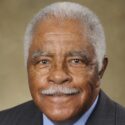 Over the past half century the rate of obesity among young girls and adolescents has nearly doubled. Yet researchers have documented that there has been no significant increase in the amount of food eaten by girls in these age groups.
Over the past half century the rate of obesity among young girls and adolescents has nearly doubled. Yet researchers have documented that there has been no significant increase in the amount of food eaten by girls in these age groups.
A study authored by researchers at the University of Pittsburgh School of Medicine and published in the New England Journal of Medicine examined the physical activity of girls and adolescents to determine if a lack of exercise is a major contributing factor in the growth of obesity in the United States.
The study followed about 1,200 Black girls and 1,200 White girls from the age of 9 through the age of 19. The study found that physical activity declined significantly during adolescence for both Black and White girls but that the rate of decline was more pronounced for African Americans. By age 19, in many cases, women did not participate in any physical activities.












Are we looking closely at some of the reasons for this occurance? There are not enough high-quality and affordable places in urban areas like New York City where parents can afford to pay for programs that promote physical activities outside of school. Students are more engaged in TV and computer activites.
Interesting but puzzling for several reasons: 1200 Black girls, 1200 White girls from where? In the south, everyone moves, as the weather is better, more conducive to out-door activities. Also, culturally, in the south, girls dance indoors at least and seem to continue some sidewalk activity. Unless the sampling is truly national, with representative numbers for each reason, this blanket statement seems suspect.
Dr. Mona Lisa Saloy, Author, Folklorist of Kids’ Lore